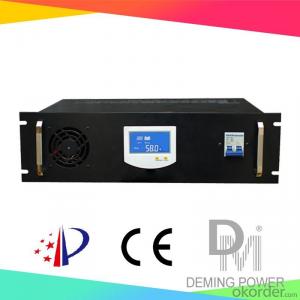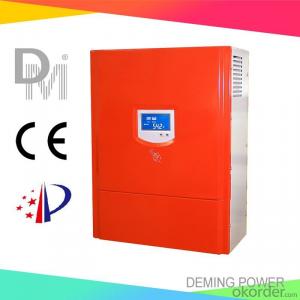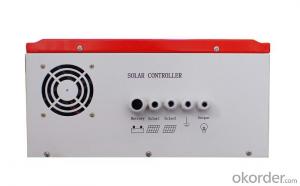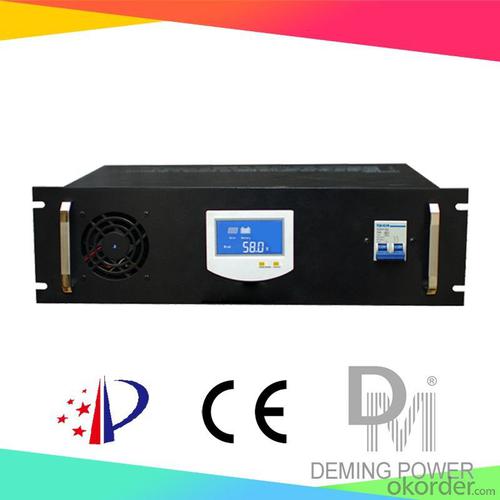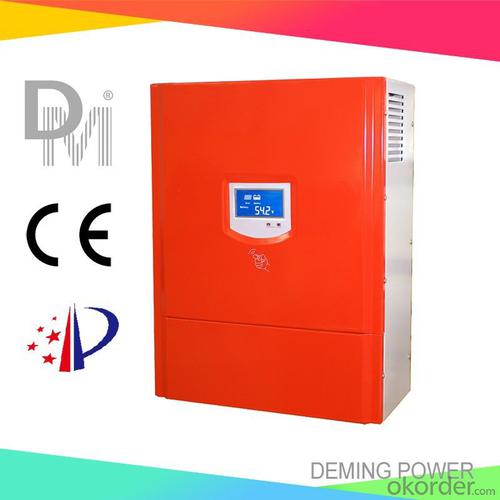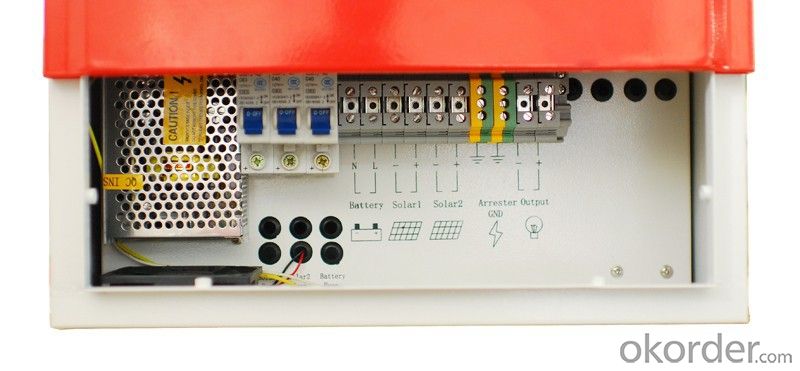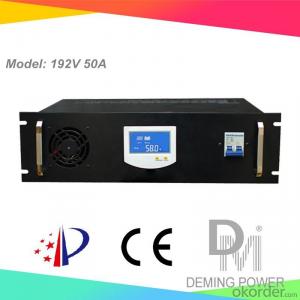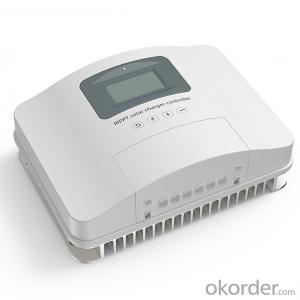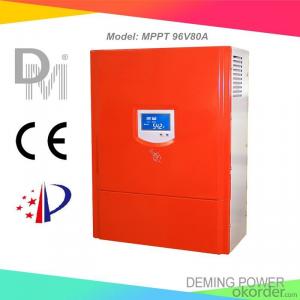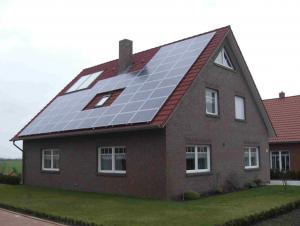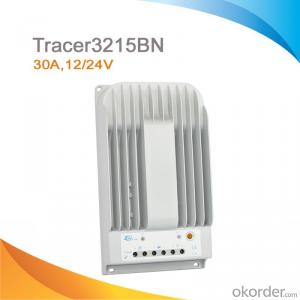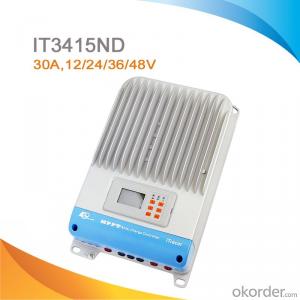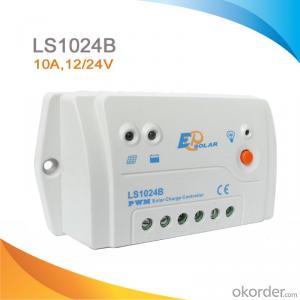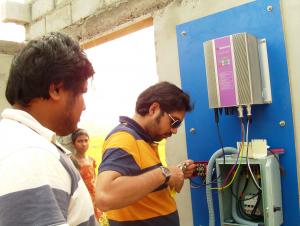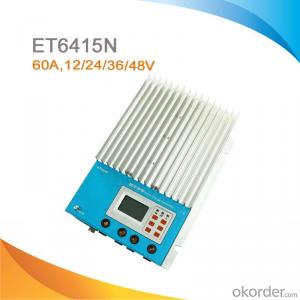Sukam MPPT Solar Charge Controller 192V 30A for Off-Grid Solar Power System with RS485
- Loading Port:
- Qingdao
- Payment Terms:
- TT OR LC
- Min Order Qty:
- 1 PCS
- Supply Capability:
- 1000 PCS/month
OKorder Service Pledge
OKorder Financial Service
You Might Also Like
Properties of the solar charge controller
1. Design for off-grid solar power system.
2. Applicable to different kinds of batteries.
3. Adopts MPPT technology (Maximum Power Point Tracking). The advanced tracking algorithm make the solar module operate at ideal voltage which the solar modules can produce the maximum available power.
4. Modular design with simple structure and easy maintenance.
5. Automatic power control function.
6. LCD display: Solar panel current, solar panel voltage, solar panel power, battery group voltage, charge current.
7. Perfect protection function: Solar reverse charge protection, Solar reverse connection protection, Battery reverse connection protection, Battery overcharge protection, Battery over current protection etc ,thus the system has higher reliability.
Technical parameters of the solar charge controller
Model | 192V30A | ||
Battery group rated voltage | 192Vdc | ||
PV Rated current | 30A | ||
PV open circuit voltage | 500V | ||
PV Max. power | 5760Wp | ||
MPPT input DC voltage range | 150-240Vdc | ||
Input PV module road number | 1 | ||
Function | MPPT charge mode, auto stop charge, auto recharge voltage; Protection: connecting contrary, over current, short circuit, over heat etc. | ||
Display mode | LCD | ||
Display content | solar panel voltage, solar panel current, solar panel power, battery voltage, charge current | ||
Floating Charge Voltage (adjustable) | 110Vdc | ||
Stop charge voltage | 116Vdc±1% | ||
Recharge voltage | 108V±1% | ||
Voltage drop between PV and battery | 1.5V | ||
Max itself power consumption | 100mA-150mA | ||
Work environment temperature | -30-60°C | ||
Relative humidity | 90% No condensation | ||
Applicable altitude | 3000m The rated power should be reduced when it is higher than 2000m | ||
Noise (1m) | 40dB | ||
Degree of protection | IP20(Indoor) | ||
Cooling method | Forced air cooling | ||
*Communication interface (optional) | RS485/USB | ||
*Temperature compensation(optional) | -4mv/°C/2V,-35°C~+80°C,Accuracy:±1°C | ||
Product size (mm) | 520*430*200mm, (Black one) 480*360*150mm, (Red one) | ||
Weight(kg) | 12Kg(Black one) 14kg(Red one0 | ||
*Above parameter only for reference. Could be custom made to user specifications.
- Q: How does a solar controller prevent reverse current flow?
- A solar controller prevents reverse current flow by utilizing diodes that act as one-way valves, allowing current to flow from the solar panel to the battery but not in the opposite direction.
- Q: Can a solar controller be used for off-grid solar systems?
- Yes, a solar controller can be used for off-grid solar systems. The controller regulates the flow of electricity from the solar panels to the batteries, ensuring efficient charging and preventing overcharging. It is an essential component for off-grid systems as it helps manage and optimize the use of solar energy.
- Q: How long do solar controllers typically last?
- Solar controllers typically last for around 10 to 15 years, depending on the quality of the controller and how well it is maintained.
- Q: Can a solar controller be used with a generator as a backup power source?
- Yes, a solar controller can be used with a generator as a backup power source. The solar controller regulates the charging and discharging of batteries in a solar power system, ensuring that the batteries are properly charged and protected. When a generator is used as a backup power source, the solar controller can still manage the charging process effectively, allowing for a smooth transition between solar power and generator power.
- Q: Can a solar controller be used in a solar-powered weather monitoring system?
- Yes, a solar controller can be used in a solar-powered weather monitoring system. The solar controller helps regulate and optimize the charging process of the solar panels, ensuring that the battery is charged efficiently and preventing overcharging. This is crucial for maintaining the continuous operation of the weather monitoring system, especially during periods of low sunlight or high power demand.
- Q: What is the boost charging mode of a solar controller?
- The boost charging mode of a solar controller is a feature that allows the controller to increase the voltage and charge rate to the battery to quickly reach its maximum charge capacity. This mode is typically used when the battery is deeply discharged or when there is limited sunlight available.
- Q: Can a solar controller be used in a solar-powered electric go-kart system?
- Yes, a solar controller can be used in a solar-powered electric go-kart system. A solar controller helps regulate and optimize the charging process of the batteries connected to the solar panels. In a solar-powered electric go-kart system, the solar controller would ensure that the energy from the solar panels is efficiently stored in the batteries and used to power the go-kart's electric motor.
- Q: Can a solar controller handle high wind conditions?
- Yes, a solar controller can handle high wind conditions. Solar controllers are typically designed to withstand various environmental factors, including high wind speeds. They are made to be durable and able to withstand harsh conditions, ensuring the safe and efficient operation of solar power systems even in windy conditions.
- Q: Are there any disadvantages of using a solar controller?
- Yes, there are some disadvantages of using a solar controller. One major disadvantage is that solar controllers can be quite expensive to purchase and install. The cost of a solar controller can add to the overall cost of setting up a solar power system, which may be a deterrent for some individuals or businesses. Another disadvantage is that solar controllers can be quite complex to operate and maintain. They require proper programming and configuration to ensure optimal performance, and regular maintenance to keep them functioning efficiently. This may require technical expertise or the hiring of professionals, which can be an additional cost. In addition, solar controllers can have limited compatibility with certain solar panels or battery systems. It is important to ensure that the solar controller is compatible with the specific components of the solar power system, otherwise it may not function properly or could even cause damage. Lastly, solar controllers rely on sunlight to generate power, so they may not be as effective in areas with limited sunlight or during cloudy days. This can result in reduced energy production and may require alternative power sources or energy storage solutions. Overall, while solar controllers offer many benefits in terms of regulating and optimizing solar power systems, they do come with some disadvantages that need to be considered before making a decision.
- Q: Can a solar controller be used with solar-powered street lights?
- Yes, a solar controller can be used with solar-powered street lights. The solar controller helps regulate and manage the charging and discharging of the batteries in the street lights, ensuring optimal performance and efficient utilization of solar power.
Send your message to us
Sukam MPPT Solar Charge Controller 192V 30A for Off-Grid Solar Power System with RS485
- Loading Port:
- Qingdao
- Payment Terms:
- TT OR LC
- Min Order Qty:
- 1 PCS
- Supply Capability:
- 1000 PCS/month
OKorder Service Pledge
OKorder Financial Service
Similar products
Hot products
Hot Searches
Related keywords
